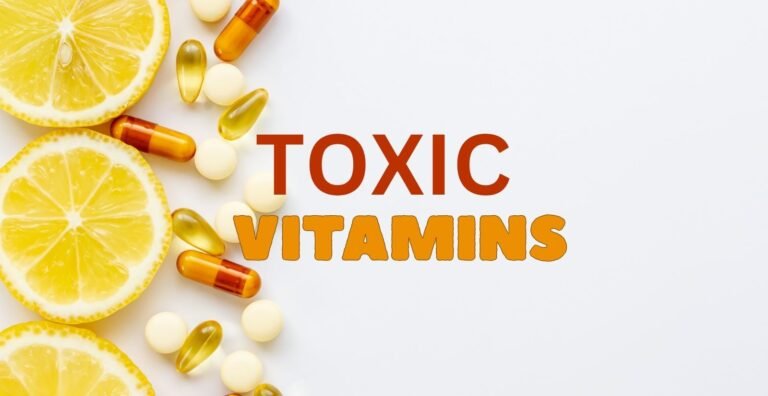Top Health & Wellness Product Reviews with Exclusive Sale Prices!
Natural Ways to Support a Healthy Prostate: Expert Tips

Maintaining prostate health is essential for overall well-being, especially as men age. The prostate gland plays a crucial role in reproductive health, but factors like diet, lifestyle, and genetics can impact its function. Fortunately, there are natural ways to support a healthy prostate, reducing the risk of common issues such as benign prostatic hyperplasia (BPH) and prostate cancer.
In this article, we’ll explore science-backed strategies to promote prostate health, including dietary choices, lifestyle habits, and natural supplements.
Follow these to maintain a healthy prostate:
1. Eat a Prostate-Friendly Diet
Best Foods for Prostate Health
- Tomatoes & Lycopene – Tomatoes are rich in lycopene, an antioxidant that may help reduce the risk of prostate cancer. Cooking tomatoes enhances lycopene absorption, making tomato-based sauces and soups excellent choices.
- Pumpkin Seeds & Zinc – Zinc is essential for prostate function, and pumpkin seeds provide a natural source of this mineral.
- Fatty Fish & Omega-3s – Salmon, mackerel, and sardines contain omega-3 fatty acids, which help reduce inflammation and support prostate health.
- Cruciferous Vegetables – Broccoli, cauliflower, and Brussels sprouts contain sulforaphane, a compound that may help prevent prostate cancer.
- Green Tea & Antioxidants – Green tea is packed with polyphenols, which have been linked to lower prostate cancer risk.
Foods to Avoid
- Processed Meats – High consumption of processed meats has been associated with an increased risk of prostate issues.
- Dairy Products – Excessive dairy intake may contribute to prostate inflammation.
- Sugary & Fried Foods – These foods can lead to obesity and inflammation, both of which negatively impact prostate health.
2. Stay Active & Exercise Regularly
Physical activity is crucial for maintaining a healthy prostate. Regular exercise helps regulate hormones, improve circulation, and reduce inflammation.
Best Exercises for Prostate Health
- Aerobic Exercises – Activities like brisk walking, jogging, and cycling improve cardiovascular health and reduce inflammation.
- Strength Training – Weightlifting and resistance exercises help maintain muscle mass and support metabolic health.
- Pelvic Floor Exercises – Kegel exercises strengthen the pelvic muscles, improving urinary function and reducing symptoms of an enlarged prostate.
3. Maintain a Healthy Weight
Obesity is linked to an increased risk of prostate issues, including BPH and prostate cancer. Maintaining a healthy weight through balanced nutrition and regular exercise can significantly reduce these risks.
Tips for Weight Management
- Eat nutrient-dense foods – Focus on whole foods rich in fiber, protein, and healthy fats.
- Stay hydrated – Drinking enough water supports urinary health and prevents dehydration-related prostate issues.
- Limit alcohol & caffeine – Excessive alcohol and caffeine intake can irritate the bladder and worsen prostate symptoms.
4. Reduce Stress & Improve Sleep
Chronic stress and poor sleep can negatively impact prostate health by increasing inflammation and disrupting hormonal balance.
Ways to Manage Stress
- Meditation & Deep Breathing – Practicing mindfulness can lower stress levels and improve overall well-being.
- Regular Sleep Schedule – Aim for 7–9 hours of quality sleep per night to support hormonal balance.
- Limit Screen Time Before Bed – Reducing exposure to blue light helps improve sleep quality.
5. Try Natural Supplements
Certain herbal supplements have been studied for their potential benefits in supporting prostate health.
Top Natural Supplements
- Saw Palmetto – Known for its ability to reduce symptoms of an enlarged prostate.
- Stinging Nettle – Contains anti-inflammatory properties that may help with urinary function.
- Rye Grass Pollen Extract – Used to improve prostate health and reduce inflammation.
- Green Tea Extract – Rich in antioxidants that support prostate function.
6. Regular Prostate Screenings
Routine prostate screenings are essential for early detection of potential issues. Prostate-specific antigen (PSA) tests and digital rectal exams (DRE) help monitor prostate health and detect abnormalities.
When to Get Screened
- Men over 50 – Annual screenings are recommended.
- Men with a family history of prostate cancer – Consider earlier screenings starting at age 40.
ProstaVive: The Natural Solution for Prostate Health & Wellness
Support your prostate health naturally with ProstaVive! This powerful supplement is designed to improve
Supports prostate health – Helps maintain a healthy prostate and reduces discomfort.
Improves urinary flow – Enhances bladder control and reduces frequent trips to the bathroom.
Boosts energy levels – Provides natural ingredients that help fight fatigue.
Enhances circulation – Promotes better blood flow for overall wellness.
Contains natural ingredients – Made with clinically tested herbs and nutrients.
🔹 Take control of your health today! Order now and experience the benefits! 🚀
Conclusion
Supporting prostate health naturally involves a combination of diet, exercise, stress management, and regular screenings. By making proactive lifestyle choices, men can reduce their risk of prostate-related conditions and maintain overall well-being.







